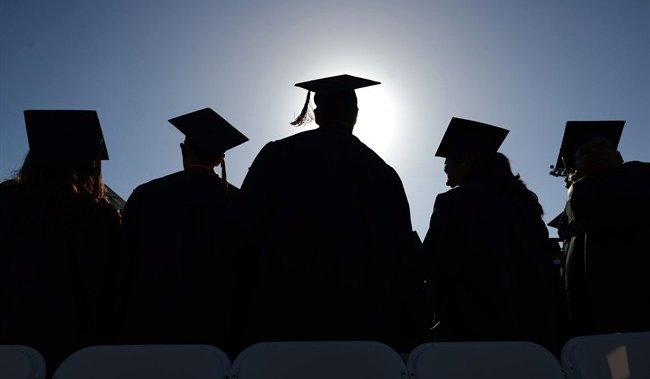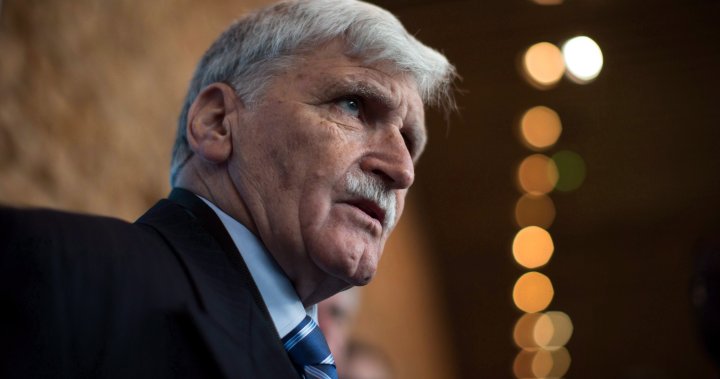Ottawa’s largest public school board is just weeks away from completing a public consultation that could be instrumental in a potential shift away from year-end graduation ceremonies and into more equity-based commencement ceremonies.
A policy based on the results is expected to go before the Ottawa-Carleton District School Board in early April and members will either vote ‘yea’ or ‘nay’ to an edict that allows students without passing grades to “cross the stage” with peers in traditional end-of-year gatherings.
OCDSB School Board Trustee Lyra Evans says the intention is to include many students who have been unable to meet Ontario Secondary School Diploma (OSSD) requirements due to “extenuating circumstances.”
That includes students who have not been in the education system long enough, students with Specialized Education needs not working toward an OSSD and students who had their path to meeting OSSD requirements unexpectedly hindered.
“A lot of our students have started kindergarten with one cohort and worked all the way through to Grade 12, so it makes sense they leave with that group,” Evans explained. “If they’re one credit short and finishing it up over the summer, it doesn’t seem fair to make them walk the stage with a group of peers in the next year.”

Commencement celebrations in lieu of graduation are not unique in Ontario as Hamilton’s public school board has had them across its 13 high schools for about three years with members insisting it promotes “welcoming, inclusive” communities in schools.
The change has not gone as far as eliminating awards, which still acknowledge academic achievers, but ceremonies are no longer gender-based and celebrate a “wider variety of aspects of student experiences and talent.”
Breaking news from Canada and around the world
sent to your email, as it happens.
Breaking news from Canada and around the world
sent to your email, as it happens.
Hamilton-Wentworth District School Board (HWDSB) trustee and chair of its policy committee Todd White says the board doesn’t have a specific rule that orders commencements over graduations but rather an “equity policy” with the expectations that staff and senior leaders will carry it out.
“We have a lot of guiding principles around equity, achievement and our expectations, so our staff took those policies and interpreted them to switch from graduation to commencement,” White clarified.
He says the main goal is acknowledging a student’s full potential and taking into account that every pupil has a different achievement level and different goals.
“So it’s not just who can run the fastest or get the highest mark, it’s about achieving your best capability,” according to White. “If we truly believe that as an organization, then we should weave that into commencements.”

Ontario’s Ministry of Education, which leaves the execution of graduation and commencement ceremonies to individual school boards, estimates about 84 per cent of students who started Grade 9 before the pandemic graduated within four years.
That number improved to 89.1 per cent when the timeline was shifted to five years.
During the same period, just over 90 per cent of OCDSB students got a diploma after five years with about 87 per cent getting it at the end of four years.
The HWDSB has a lower rate with only about 82 per cent for those who started Grade 9 in the 2017-2018 school year graduating in 2022.
One education analyst suggests the move away from graduation ceremonies is the latest flashpoint in an ongoing debate over what he calls “declining standards in Canadian schools.”
Paul Bennett, founding director of Schoolhouse Consulting, says the idea “devalues the high school diploma,” and takes away a reward for students who achieve a higher standard.
“So we’re talking about maybe 14 per cent of students in any given June who would not have graduated or would not have completed their credits … (who are) going to be given a free pass with this, which is bizarre, really,” said Bennett.
He goes on to submit that a “growth mindset” learning facilities hope to instill in students “to respond to defeats or failures” will be negatively impacted.
“None of this advances the cause of creating a new generation of kids who have the growth mindset and a desire to succeed and excel and do better,” according to Bennett.
But Evans says an update was due, characterizing current practices as “outdated” since the Ottawa board hasn’t addressed them in decades.
“When I hear people say they are worried about the quality of education, I don’t think that’s a fair criticism because the expectations to graduate have not changed in the least,” Evans said.
“Specific individuals who this might apply to would include high needs special education students, who might never have been expected to get an OSSD.”
White admits it’s “an interesting debate” and understands how removing “old-style” graduations may be construed as a barrier for students who achieve a higher academic level.
However, he believes it’s unfair to have the same achievement criteria for every student since not every human being performs at the same level and in the same category.
“We want to push each and every student individually based on their capabilities, their goals and their personal achievement,” said White.
“It’s not a matter of giving students a free pass … it’s about really identifying what excellence looks like.”
Ottawa’s board is expecting to see a draft of a new policy on April 4 with a final presentation seeking approval on April 25.
© 2024 Global News, a division of Corus Entertainment Inc.





